YAMASHIN-FILTER’s ESG-driven Management
In line with our corporate philosophy of “仕濾過事” (Rokajinitsukafuru), we will reinforce our ESG management to realize a sustainable society and help solve diverse social issues.
We have adopted “仕濾過事” (Rokajinitsukafuru: Contribute to society through the filtration business), which has been our corporate philosophy since our founding, more than half a century, as our Group’s sustainability policy. Going forward, while taking into account the positive and negative impacts that the YAMASHIN-FILTER Group’s business activities have on society and the environment, we will promote ESG-driven management that meets the expectations of our many different categories of stakeholders.
Sustainability Policy
仕濾過事” (Rokajinitsukafuru) - “Contribute to society through the filtration business”
In line with our corporate philosophy of “仕濾過事” (Rokajinitsukafuru) or “Contribute to society through the filtration business,” and with the aim of helping to realize a sustainable society, YAMASHINFILTER is contributing toward solving society’s problems relating to Environment, Air quality and Health, by making effective use of the strengths that we have cultivated in our filter business.
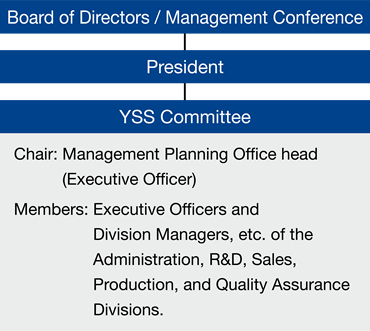
In FY2021, we established the Yamashin Sustainable Solutions (YSS) Committee as an advisory body for the President. The committee is chaired by the head of the Management Planning Office, who also serves as an executive officer, and has around 20 members, including all of the company’s executive officers.
The YSS Committee meets once a month to discuss initiatives relating to the promotion of the SDGs and ESG. The content of their discussions is reported to the Board of Directors and the Management Conference.
Main Topics Addressed by the YSS Committee in Fy2024
- Review of human rights risk assessment
- Biodiversity initiatives
- Formulation and revision of policies
- Reporting of external ESG assessment results
etc.
Since the establishment of the YSS Committee, we have held training and workshops on sustainability for employees. In addition to basic topics, such as sustainability, the SDGs, and TCFD, we have held several workshops on human rights for formulating policies and evaluating risks.
Since FY2024, we have also added lectures on sustainability as part of training for new employees, leading to greater awareness by sharing our progress on material issues and company targets and initiatives.
Following the process outlined in the GRI sustainability reporting standards, we have identified the material issues for our Group in line with our corporate philosophy of “仕濾過事” (Rokajinitsukafuru), and our approach to value creation. These material issues have been discussed by the YSS Committee in light of our business environment and the demands of society. We believe that addressing these issues through our business will, in turn, lead to the addressing of social issues.
In our Medium-Term Management Plan --“Fly to the next stage!” --which was formulated in November 2024, we set the promotion of ESG management as one of our strategies. As non-financial KPIs, we set the targets of achieving a FTSE score of 4.0 or higher, and a CDP Climate Change score of A, by the fiscal year ending March 2028. Given this, we revised our material issues in FY2025, newly identifying conservation of biodiversity, governance and compliance, and evaluation by stakeholders. We also established medium-to-long-term targets for reducing Scope 1, 2, and 3 greenhouse gas emissions and organized the relevant metrics and targets. The revised material issues were approved following discussions within the YSS Committee.

Collation of issues
- Candidate material issues were identified with reference to relevant guidelines and frameworks, considering their relevance to the YAMASHIN-FILTER Group’s business areas and key initiatives.
- These candidate material issues were collated by theme, considering both positive and negative impacts the company has on the economy, environment and society.
- Study sessions for executive officers were held to deepen understanding of these candidate issues.
Referenced guidelines, frameworks, etc.: GRI Standards, ISO 26000, SDGs, ESG evaluation items from FTSE, MSCI, etc.

Assessment of the importance of issues and formulation of draft proposals
- The importance of the candidate material issues collated in Step 1 was assessed based on two axes: impact on stakeholders, and importance to the YAMASHIN-FILTER Group. Each material issue was further weighted based on a survey of executive managers.
- The material issues and commitment proposals were drawn up.
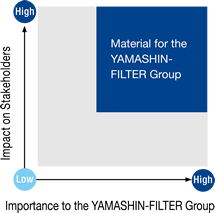

Confirmation of appropriateness and organizational approval of material issues
- To formulate and discuss the material issues and commitment proposals, the YSS Committee exchanged views with external experts and held internal discussions over a period of more than six months.
- The identified material issues and corresponding commitment proposals were reported to and approved by the Management Conference.
We revised our material issues following the formulation of our Medium-Term Management Plan in November 2024. Based on these re-identified material issues, we are advancing efforts to address them with a management system to set policies for our initiatives as well as KPIs for each material issue, and to determine management responsibilities and methods.
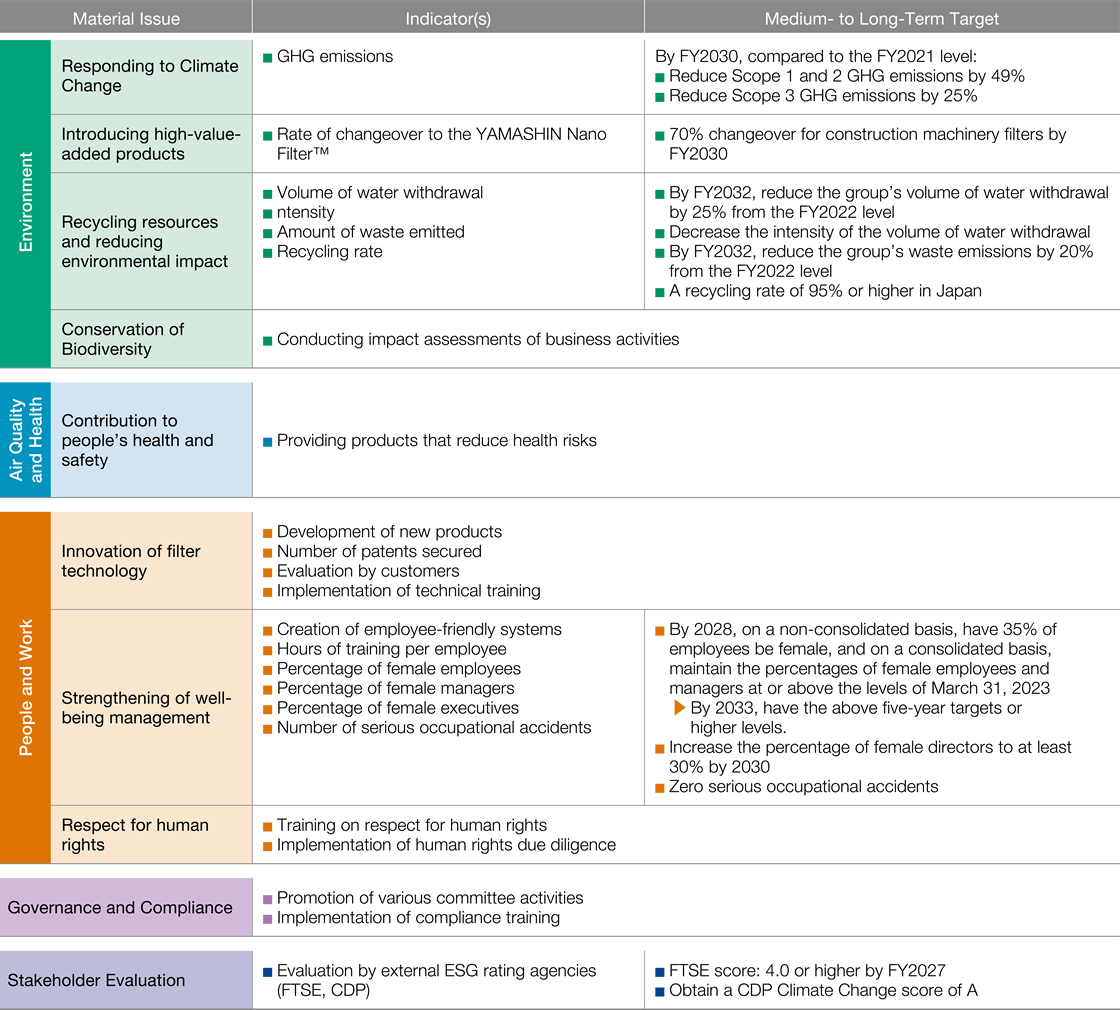
As well as being evaluated by ESG rating agencies, our trusted business endeavors are well-regarded by our customers.

Our company responded to the CDP Climate Change 2024 Questionnaire conducted by CDP, an international environmental non-profit organization that evaluates corporate and municipal environmental initiatives. In February 2025, we got an A score and were recognized as an A List company. CDP uses an eight-tier rating system (A, A-, B, B-, C, C-, D, D-), with the highest A score signifying achievement of leadership status. For the FY2024 questionnaire, we improved by two tiers from B score in FY2023.
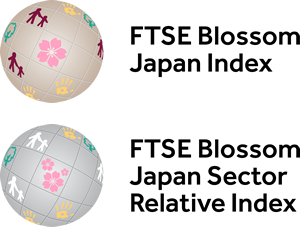
In 2025, we received a score of 3.8 in the ESG (environmental, social, and governance) assessment provided by FTSE Russell, surpassing our previous year's score of 2.7 (out of 5). As a result, we were selected for the first time as a constituent of the FTSE Blossom Japan Index and were selected for the third consecutive year as a constituent of the FTSE Blossom Japan Sector Relative Index.
*FTSE Russell (registered trademark of FTSE International Limited and Frank Russell Company) confirms that, as a result of a third-party investigation, YAMASHIN-FILTER CORP. has been independently assessed according to the index criteria, and has satisfied the requirements to become a constituent of the FTSE Blossom Index and the FTSE Blossom Japan Sector Relative Index. Both Indexes are widely used to create and evaluate sustainable investment funds and other financial products.
The YAMASHIN-FILTER Group’s reliable supply system , contribution to greater work efficiency, and initiatives such as activities to raise awareness are well-regarded by our customers. We will continue to increase customer satisfaction and corporate value by developing products that enable more sophisticated needs and problem solving in addition to supplying high quality products on a global scale and providing support.
|
Customer’s Name |
Details of Award |
|---|
|
Hitachi Construction Machinery Thailand Co., Ltd. |
Supply Chain Excellence Award Our Thai sales subsidiary (YAMASHIN THAI Ltd., hereinafter referred to as YTL) was honored with an award for its significant contribution to further enhancing the efficiency of the Hitachi Construction Machinery Group’s supply chain for recognition for contributing to cost reductions associated with simplified order processing and optimized inventory management. |
|
Caterpillar Japan LLC Akashi Plant |
2024 Supplier Award: Innovation Award We were recognized for our overall contributions in quality, cost, and delivery, and our development was recognized as being especially good. |
|
Hitachi Construction Machinery Asia and Pacific Pte. Ltd. |
Appreciation Award YTL's significant contribution to promoting sales of genuine Hitachi Construction Machinery brand replacement filter parts supplied by our company was highly regarded, resulting in this award for the second consecutive year. |
|
Kobelco Construction Machinery Southeast Asia Co., Ltd. |
2024 THE BEST DELIVERY PERFORMANCE Award YTL was recognized by KCMSA, a base in Southeast Asia which primarily produces hydraulic excavators and receives supplies from over 80 suppliers, including our company, for achieving an exceptionally high on-time delivery rate exceeding 99%. This marks the second consecutive year we have received this award. |
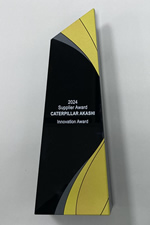
2024 Supplier Award: Innovation Award Trophy